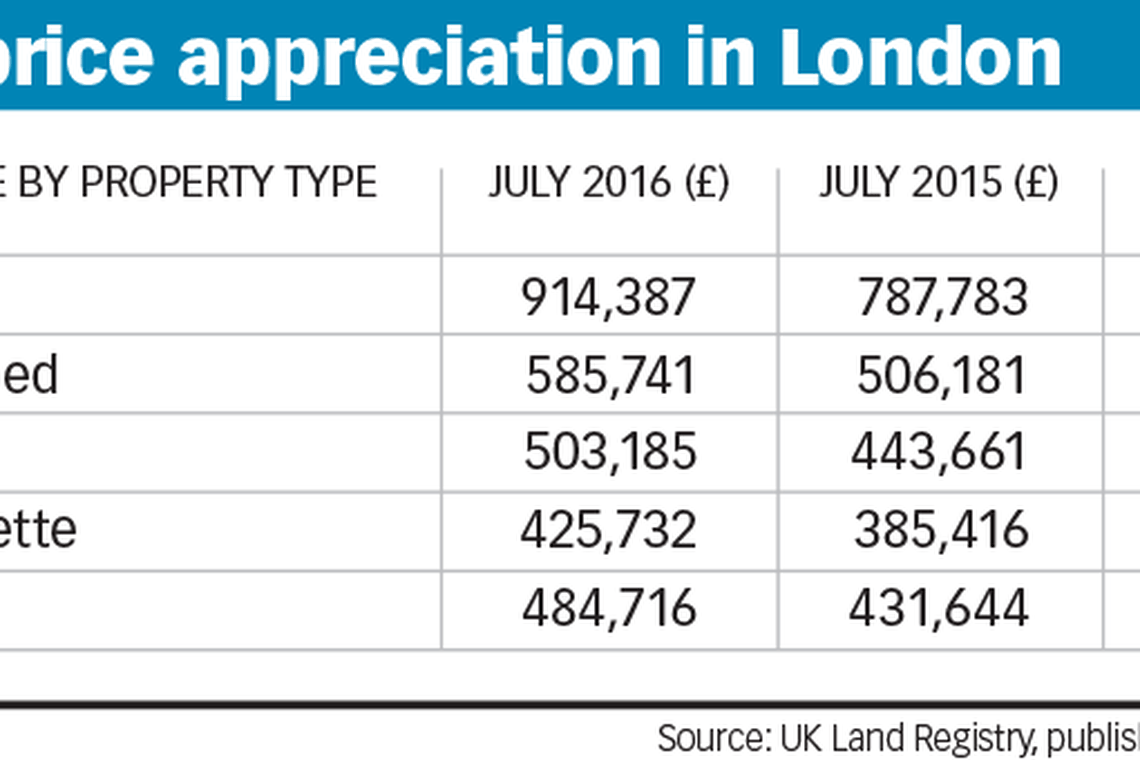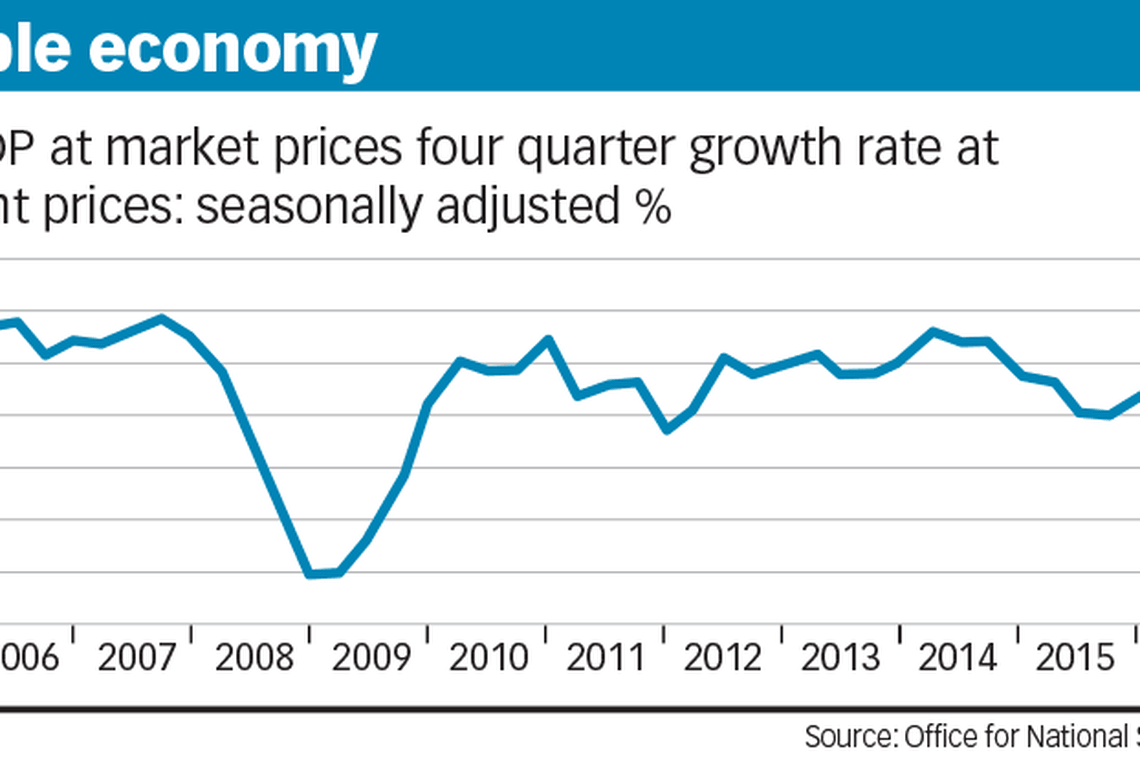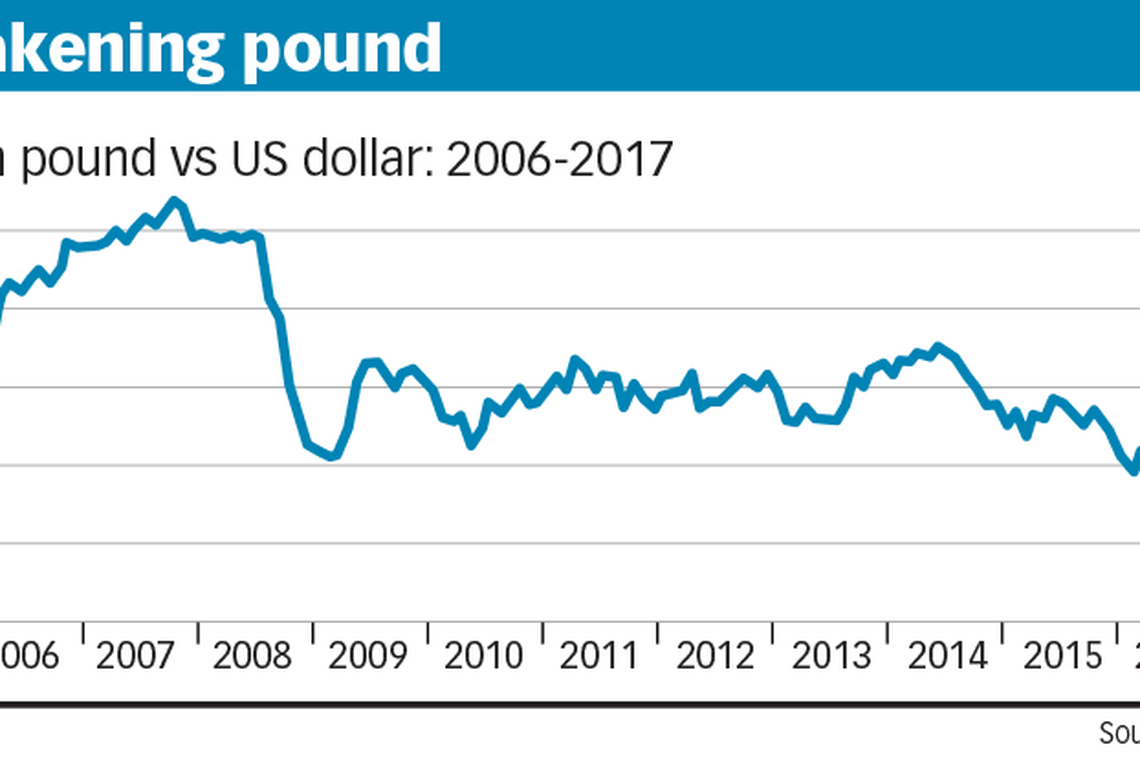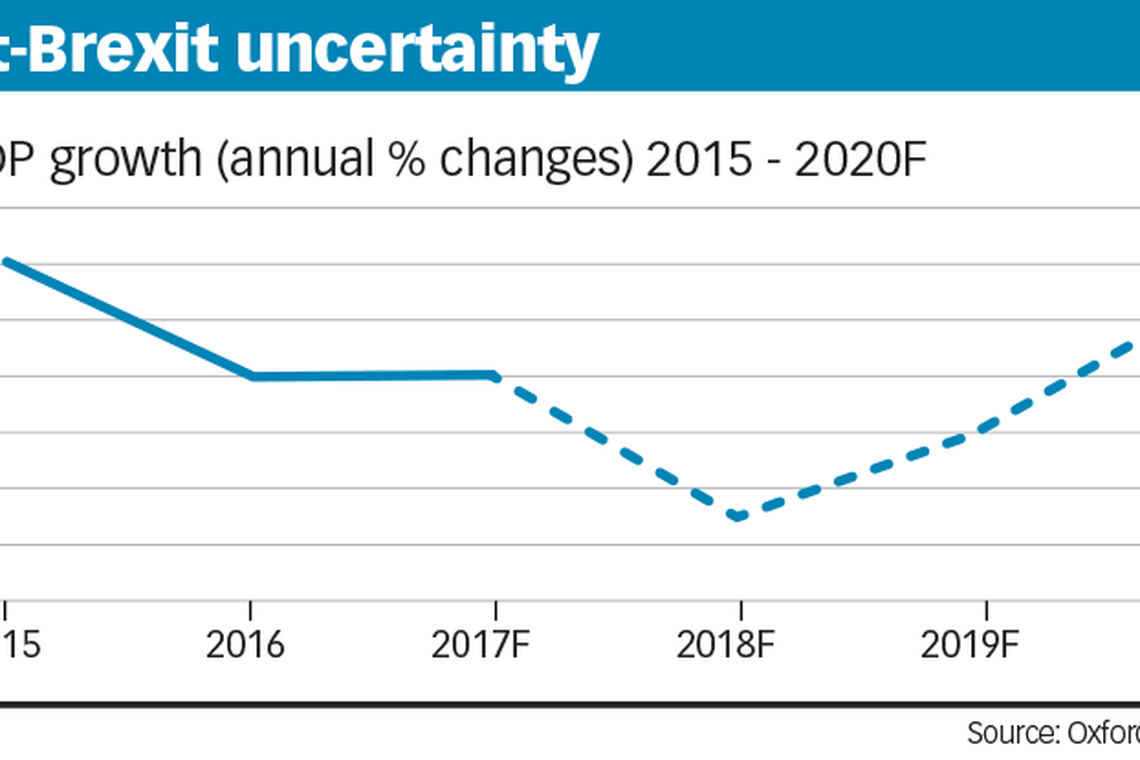UK housing post-Brexit: what lies ahead
There remains a high level of speculation over the impact of Brexit on prices of UK - most notably London - property. While it may be too early to discern its likely long-term impact, in the past few months following the initial shock of the UK vote to leave the EU, we are witnessing strong signs that initial fears that the vote would cause a downturn to the housing market have been defied, and confidence is now returning to the market.
The improvement in demand indicators provides grounds to believe that the Prime Central London market is set for at least a modest recovery in trading volumes; whether this translates into significant price rises is less clear, although according to the Halifax House Price Index, prices rose 6.5 per cent year-on-year in 2016.
There is no doubt that conditions in the market "settled down" almost immediately after the uncertainty of the Brexit vote. Coupled with this, the average price of a home in London inched up one per cent month-on-month to £484,716 (S$843,200) in July 2016, making it 12.3 per cent higher than a year earlier, according to the latest data from the Land Registry.
Another positive sign, and one that reinforces the belief that Brexit has had much less impact than initially feared on UK house prices, is that recent reports showed residential sales in central London were stronger in 2016 than in the previous year. In addition, despite the lull which typically occurs in the summer months, the number of new prospective buyers rose by over 20 per cent, with the number of properties under offer rising at a similar rate during the same period. It was also reported that there was a marked increase in enquiries and viewings by up to 50 per cent.
Figures from the Bank of England also revealed a rise in mortgage lending with over 67,000 home purchase mortgages being approved in December 2016, meaning that house lending was up by 10 per cent on the low level of 61,359 in August, shortly after the Brexit vote. The market hasn't yet sprung back to the heyday of January 2016, when buy-to-let investors were eagerly snapping up property before the stamp duty legislation came into force in April. However, signs are certainly brighter and the market appears to be pushing ahead, despite negative political undercurrents.
As has been widely reported, the continued lack of supply specifically in the London market means that the resilience of the housing market against political and economic forces is likely to be maintained for the foreseeable future. This structural mismatch between demand and supply may not be balanced any time soon for what we consider to be a number of reasons on both sides:
Demand An insurgence of foreign buyers who have either already changed up currency when the sterling hit record lows, or who are intending to purchase over the short to medium term. UK property is now 10 per cent cheaper for this group of buyers. For domestic buyers, fears that Brexit would lead to tougher lending measures from banks have not materialised. Loan to valuation of 95 per cent is still widely available for firsttime buyers and those with a smaller cash budget, and continued low interest rates without any sign of an increase are giving this group of buyers the confidence to continue purchasing - whether for investment or self-occupancy.
Supply Uncertainty following the EU referendum has dampened confidence of many UK home builders, leading to greater risk aversion, and encouraging a wait-and-see approach to decision making. Coupled with high land prices and construction costs, there has been lowered activity in the housing construction sector restricting supply across the board.




In addition, there has been a lot of discussion on removing the additional 3 per cent stamp duty land tax (SDLT) rate applied to investors and second home buyers. Instead of increasing government tax revenues as intended, the result of this tax has meant investors have put off buying, decreasing the number of transactions and subsequently overall tax revenue. In order to encourage investors to go back to the market and increase SDLT revenues, it may well be that this tax is removed in the Autumn Statement, one of UK's two big economic statements, later this year.
While gross domestic product growth rates have changed at various periods over the past 10 years, there has only been one other major event that had a direct negative impact on London's property prices. This was the period which followed immediately after the global financial crisis in 2008. This period created an opportunity for investors to purchase London properties at lower prices than they would have had in times of economic growth. Traditionally considered a financial haven and a global financial city, London's property market remained resilient. Its quick recovery meant that investors who had stayed invested in London property then have seen yields continuing to remain attractive since.
So far the biggest impact of Brexit on the UK has been its effect on the currency with sterling declining against the euro and US dollar since the referendum vote in June 2016 (it is currently trading close to a 31-year low against the greenback with many analysts expecting parity with the euro at some stage). Overseas buyers of international property now have another buying opportunity. The result of this is that many international London property investors, especially those in Asia, are looking to London as the number one residential investment market globally due to automatic discounts offered by a weak currency, and an economy which has on the whole remained unscathed by the impending departure of the UK from the EU. The currency's continued weakness has been accentuated by the cut in interest rates from 0.5 per cent to 0.25 per cent in August, and the Bank of England's economic stimulus measures.
The pound has been one of the worst performing currencies globally in 2016 but it is likely to stabilise and strengthen in 2017 for a number of reasons:
The decrease in value of the pound only helps to emphasise that London remains the most attractive international residential investment market. While it is hard to say what's in store for the pound, many believe the currency has seen its largest falls to date, although with the triggering of Article 50 in March 2017, the pound may fall slightly further before a rebound at the end of the year.
Upsets across the eurozone and rumbles of potential in or out referendums in Denmark, France, Italy, the Netherlands, and Sweden, as well as the introduction of potentially inward- looking policies from the Trump presidency in the US, mean that sterling could see growth against the euro and US dollar. In addition, the UK Chancellor of the Exchequer announced increased spending in high-value investments such as innovation and infrastructure in his Autumn Statement 2016, of which the knock-on effect is expected to have a positive impact on the value of sterling.
With the uncertainties surrounding the impact of Brexit on the UK, Oxford Economics suggests that the UK's long-term growth prospects are heavily dependent upon two factors: the outcome of the negotiations over its exit from the EU, and the policies it implements thereafter in areas such as immigration. Assuming that the UK leaves the EU in early 2019, with a three-year transitional arrangement ultimately giving way to a free trade agreement, and assuming that the country takes a "populist" approach, particularly in terms of reducing the level of immigration, Oxford Economics estimates that the UK's growth prospects would average 1.7 per cent a year from 2016 through 2020.
As with the broader economy, any profound change in the housing market will only become clearer over the next year or two, depending on the outcome of a protracted period of negotiations between the EU and the UK once Article 50 is invoked.
In the meantime, it seems the UK housing market remains in a healthy state to support growing house prices, albeit at a more healthy level than what we have seen in recent years.
The writer is director, international properties, Colliers International Asia
BT is now on Telegram!
For daily updates on weekdays and specially selected content for the weekend. Subscribe to t.me/BizTimes
New Articles
HDB resale prices up 1.8% in Q1; rental market slows down
Digital Core Reit Q1 distributable income slips 2.4% to US$10.6 million
BT subscribers can now share 5 premium articles a month with unlimited number of non-subscribers
First Reit reports 3.2% lower Q1 DPU of S$0.006 amid interest rate, forex headwinds
Vietnam holds first gold auction in 11 years to stabilise market
How Hudson Yards went from ghost town to office success story
